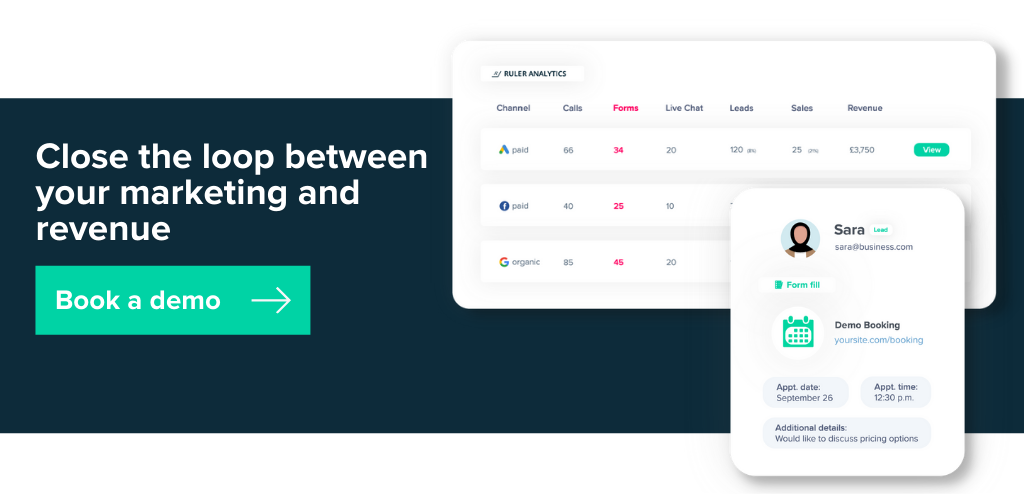Get to know all the Google Analytics 4 alternatives and pick a solution that can help you manage your marketing and optimise for maximum ROI.
As any marketer will tell you, Google Analytics is the holy grail of tracking web traffic and performance.
The data available in Google Analytics is unmatched on a statistical level. It offers a wealth of information about how users find and interact with your website.
It’s why 90% of marketers consider Google Analytics their go-to solution for measuring web and marketing performance.
But, Google Analytics isn’t the only kid on the block.
There are plenty of other alternatives out there offering the same features and more.
You just need to know where to look.
To get you started on your journey, we’re going to present some best alternatives to Google Analytics and list some key differentiators to help you determine which tool is right for your reporting needs.
In this article, we’ll discuss:
💡 Pro Tip
Ruler makes a great alternative to Google Analytics. Unlike Google Analytics, Ruler tracks your data on a visitor level, allowing you to successfully attribute leads and marketing-generated revenue across multiple sessions, campaigns, ads, keywords and more.
Learn everything you can discover in Ruler Analytics
If you are serious about tracking your website visitors and making data-driven marketing decisions, the answer is absolutely yes.
Google Analytics 4 is an important tool for almost every website owner. It allows you to track and understand your customers’ behaviour, user experience, demographic changes, marketing activity and much more.
But, what exactly makes Google Analytics so appealing to marketers? Let’s break it down into bite-sized chunks.
Google Analytics is 100% free.
There is no subscription or monthly fees for the standard version of Google Analytics.
That means anyone with a website can pull in stats on their website performance and turn data into actionable insight for absolutely no cost.
Handy if you’re on a tight budget.
Google Analytics does, however, offer a premium subscription that is available for advanced users called Analytics 360.
Analytics tools allow you to track who’s coming to your website, what they are looking for and how they found you.
Google Analytics and other modern analytics platforms do a great job of collecting this information for you using cookie data.
Related: Complete guide to first-party and third-party tracking cookies
In fact, Google Analytics has an entire section called ‘Acquisition’ dedicated to showing you how visitors find your website through your marketing campaigns, channels and more.
💡 Pro Tip
Are you already using Google Analytics to track visitor touchpoints, but aren’t getting enough valuable insight? Learn how to track user interactions across multiple channels and unlock powerful insight to improve your customer experience and marketing efforts.
Download the guide on tracking customer touchpoints
Google Analytics is the most widely used web analytics service on the web.
And, it’s also considered the most reliable analytics solution among marketers.
We found that 92% of marketers are putting all their trust into Google Analytics to track marketing performance.
No analytics tool out there is perfect, including Google Analytics.
Related: Limitations of Google Analytics and how to overcome them
Each analytics tool has its unique pros and cons.
However, when set up correctly, Google Analytics can reportedly measure over 95% of genuine visitors.
If Google Analytics 4 is so powerful, why search for an alternative? While Google Analytics 4 has been a popular choice for many years, it does have some reporting issues. Let’s explore these issues one by one.
Google Analytics does a great job providing an overview of your visitors and conversions, but that’s it.
Most of the data you see in Google Analytics is anonymised.
In other words, you can’t track individual users, where they came from or what they did on your website.
Related: Tracking individuals users in Google Analytics [SOLVED]
Anonymised data in Google Analytics makes it hard for marketers to track their customer journeys.
They can see which marketing sources drive the most conversions or leads, but they have little visibility on what happens next.
As a result, marketers are left wondering about the impact of their marketing campaigns on leads and revenue.
Pro Tip
Viewing your customer journey using Ruler couldn’t be easier. Using marketing attribution with Ruler allows you to track each visitor and assign value to the multiple interactions a customer has with your brand.
How to view full customer journeys with Ruler Analytics
Not all leads are generated online.
Some common ways companies generate leads are through offline means such as the telephone or in-store.
As we’ve already discussed, Google Analytics does a great job of measuring online activity but falls short when it comes to tracking offline conversions.
Related: How to track offline conversions in Google Analytics
Google Analytics doesn’t have the functionality readily available to track calls.
So, if you have a phone number on your website and you’re using Google Analytics exclusively, you have no way to collect data about your inbound calls or leads.
Privacy is going to continue into 2023 as a top focus for marketers. Google is currently set to phase out third-party cookies in Chrome by 2024.
As it stands, Google Analytics isn’t fully compliant with the EU laws on privacy. So far, it has been banned in Austria, France, Italy, and Denmark.
The concern with Google Analytics is that it saves user data, including details about EU residents, on cloud servers in the US.
With the recent update on Google Analytics being illegal in several EU countries, the data will become more limited in Google Analytics 4.
And as a result, marketers will find it increasingly challenging to track sessions and track what drives user interest.
With so many Google Analytics alternatives to choose from, it can be challenging to find the right one for the job. There are a few factors that can help you make the right choice. When looking for an alternative or a tool to use as an addition to Google Analytics, ideally, you want to invest in a solution that is:
Before you invest in a Google Analytics alternative, take the time to understand what you’re paying for and the value you’re receiving in return. Most solutions will offer a set price for a certain number of visitors. But, it’s not uncommon for some providers to charge additional fees for setting up your account, integrations and extra usage.
When choosing a Google Analytics alternative, look for a provider that can integrate with your CRM and other key applications you have now. With an integrated solution, you can benefit from valuable business insights not available in Google Analytics, such as:
Change is coming – whether we want it or not. Big companies like Apple and Firefox have already banned 3rd party cookies to prioritise consumer privacy and data security. And in 2024, Google is set to follow in their footsteps. With the recent privacy changes, your best bet is to stay clear of any analytics tool that relies on 3rd party cookies to collect data.
Whether you are looking for an alternative or a complementary solution to enhance the data in Google Analytics, you can be sure to find a good fit here.
We understand how tricky it can be to round up the best Google Analytics alternatives alone. That’s why we got the best minds in marketing to help put together our list of the top Google Analytics alternatives.
We may come across as biassed putting Ruler at the top of the list, but you’ll soon understand why.
Ruler makes the process of tracking your customer journeys easy. It works by tracking each visitor to your website across multiple sessions, alongside key marketing variables such as source, channel, campaign and keywords.
When a visitor converts into a lead, their information is sent to the Ruler database and matched with their marketing touchpoints to create a customer journey.
Related: How to view full customer journeys in Ruler
Ruler sends all of the data it has captured about your lead to your CRM or sales tracking system, allowing your sales team to access the data readily.
Naturally, your leads will start to progress through the pipeline as they’re nurtured by your marketing and sales teams.
Whenever your leads enter a new stage of the pipeline, the data is sent back to the Ruler dashboard.
This lets your marketing team track which type of leads are falling through the cracks and which make it to the end.
Eventually, a lead will convert into a deal or sale. And this is where the magic happens. Ruler takes the revenue data from your CRM and attributes it across each interaction a customer has with your brand.
Related: How Ruler attributes revenue to your marketing
Here you can demonstrate your impact on your bottom line and make smarter decisions to optimise your marketing for better results.
Ruler seamlessly integrates with Google Analytics. So, even if you decide to stick with Google Analytics, you can still use Ruler to track revenue data against all your favourite metrics and dimensions. In fact, we encourage it. With Ruler in play, you can get key revenue data in Google Analytics too.
Related: Benefits of integrating Google Analytics with Ruler
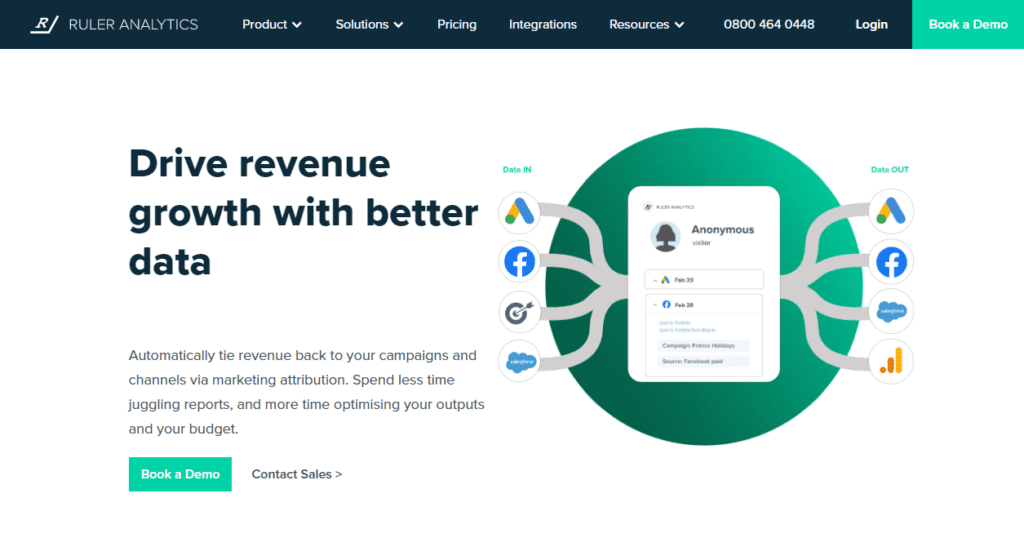
Pricing for Ruler starts at £199 a month. You can save 20% by paying annually and there are also discounted rates for agency partners.
“I’m passionate about marketing attribution and so full visibility of our marketing channels and their impact on our bottom line via Ruler was a sure way to understand what was working, and what wasn’t,” says James, Digital Marketing Manager at Croner.
Related: How Croner used Ruler to make informed decisions on their marketing
Fathom is an easy-to-use, private website analytics platform and is considered a powerful alternative to Google Analytics.
It is a cookieless platform that protects the privacy of visitors but still provides marketers with key insights on the performance of their website and marketing activity.
Fathom offers a 7-day free trial and starts from $14 per month.
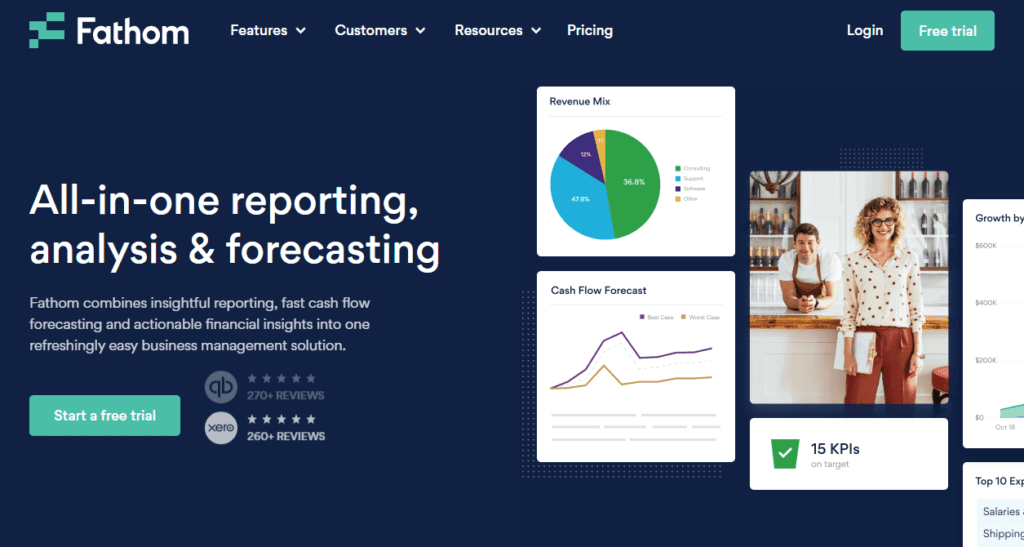
“Your privacy will never be compromised when using the lightweight data analytic tool known as Fathom. Furthermore, it is a cookieless platform making your sensitive information safe from any hackers or Google itself,” says Kevin King, Marketing Head at ICRFQ.
If you don’t have time to set up Google Analytics, Hotjar is a great alternative. Hotjar is a free tool that lets you track user behaviour on your website.
You can use Hotjar to see where visitors are going on your website, which pages they are visiting, and more.
There are four pricing tiers for HotJar: Basic at $0 per month, Plus at $39 per month, Business at $99 per month, and Scale at $389 per month.
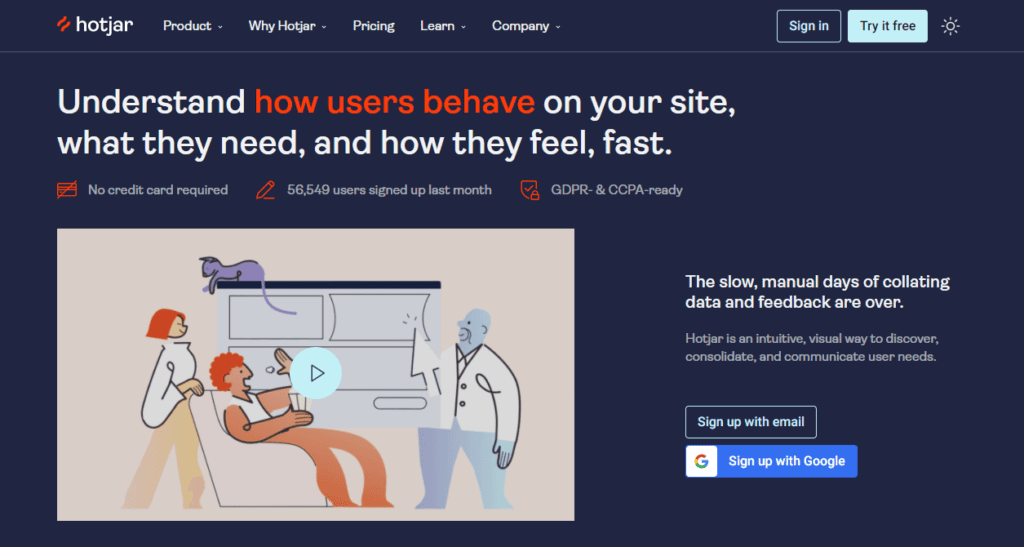
“Hotjar is another data analytics tool that helps organisations get to know customers better. Through interactive heatmaps of users’ clicks and actions on the website, a recording of their sessions, and a collection of words from surveys and feedback polls, businesses discover users’ purposes for visiting the site and how they are using it,” Michelle Ebbin, Founder at JettProof.
Matomo is another web analytics platform that provides detailed data on your website’s visitors.
In Matomo Analytics, you can expect to collect information such as the pages your user’s visit, the keywords they use to find your website and the files they download.
It also allows you to view heat maps to gain insight into where the visitors click on your website and how far they scroll on the page. Matomo has a free version and offers a free trial. Matomo’s paid version starts at $9 per month.
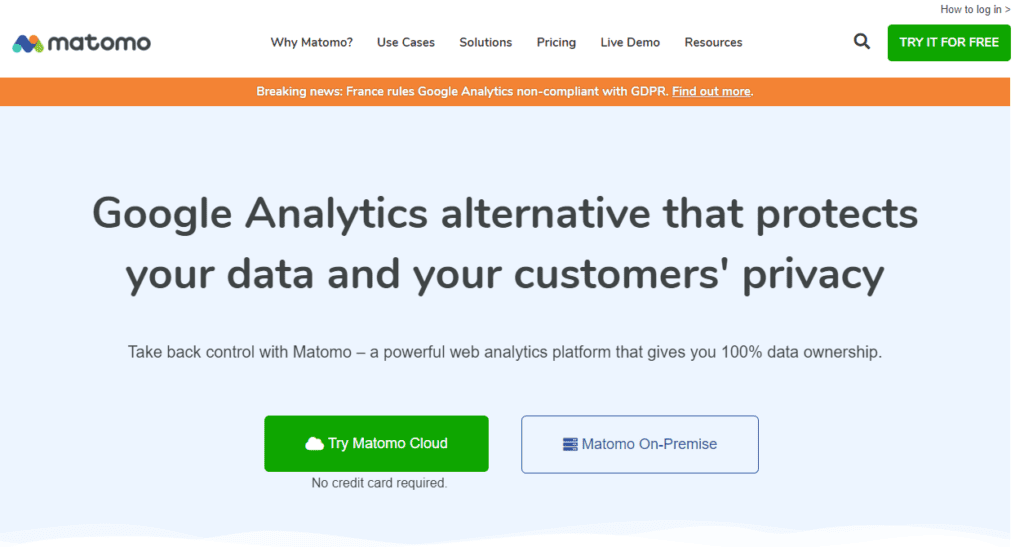
“Matomo is a free analytics platform you can use to get a better understanding of your web traffic. It’s great in conjunction with Google Analytics, or as a replacement altogether,” Gregory Yong, Chief Experience Officer at Convincely.
Mixpanel is a tool that allows you to analyse how users interact with your internet-connected product.
With Mixpanel, you can track your user behaviour, view how people engage with your product, and gain a better understanding of your customer conversion and retention rates. Mixpanel has a free version and offers a free trial. Mixpanel’s paid version starts at $25 per month.
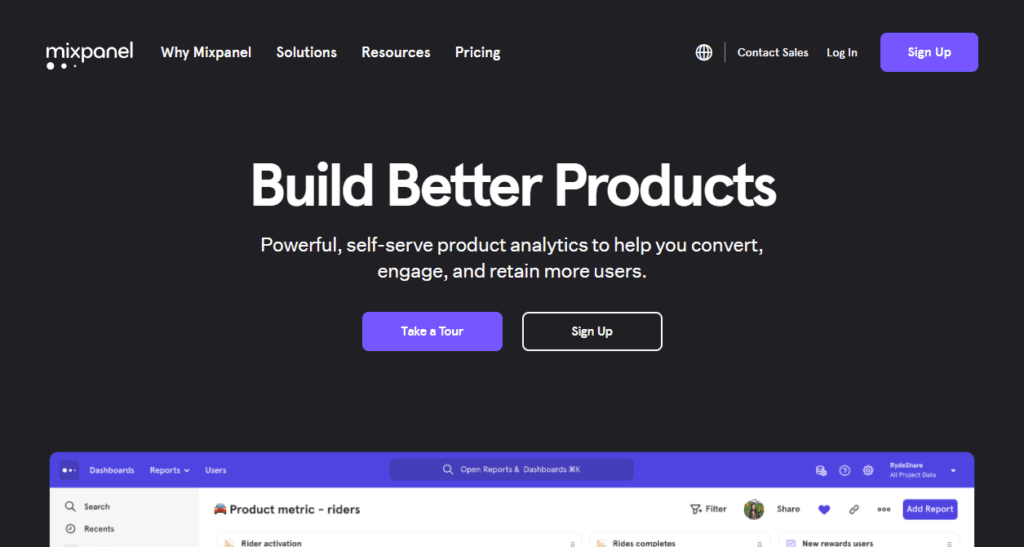
“MixPanel shows you the trends, number of users, and order of use of your service. You can also use it for A/B testing for the different versions of your mobile application. Once you add events you want to track, you can see them in the dashboard, with the metrics alongside them,” says Harriet Chan, Co-Founder & Marketing Director at CocoFinder.
Oribi is an all-in-one marketing analytics tool. It observes your visitors’ behaviours and suggests changes in real-time to improve your web performance.
Oribi has a powerful user interface and excellent design choices that make it easy for co-workers and clients to see the value of your marketing.
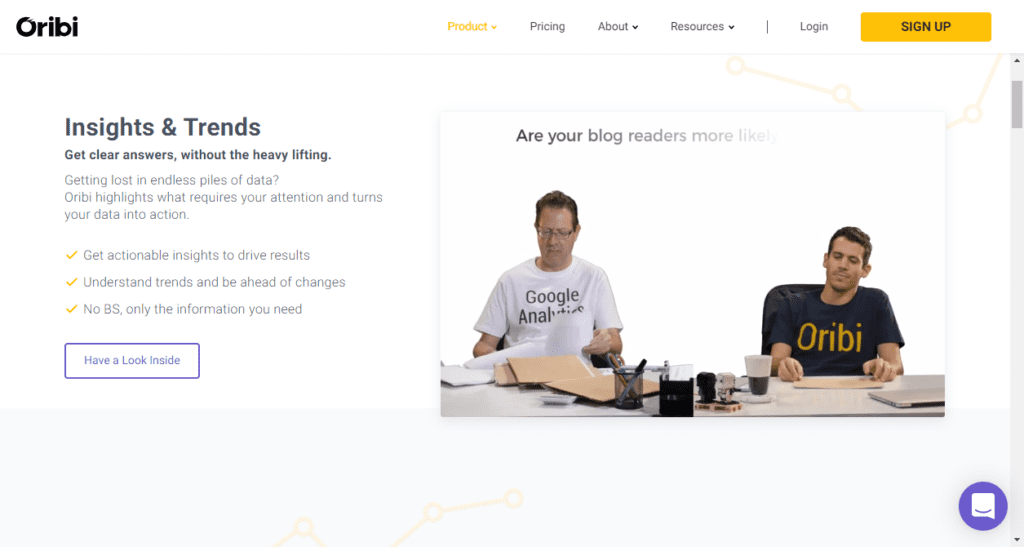
There isn’t a free version but Oribi does offer a free trial. Pricing is available upon request.
Plerdy is another Google Analytics alternative that has a wide range of features for page analysis, semantics, and errors.
It offers heat mapping and recorded sessions to improve usability and many more interesting features not currently available in Google Analytics. Plerdy has a free version and offers a free trial. It’s paid version starts at $29/month.
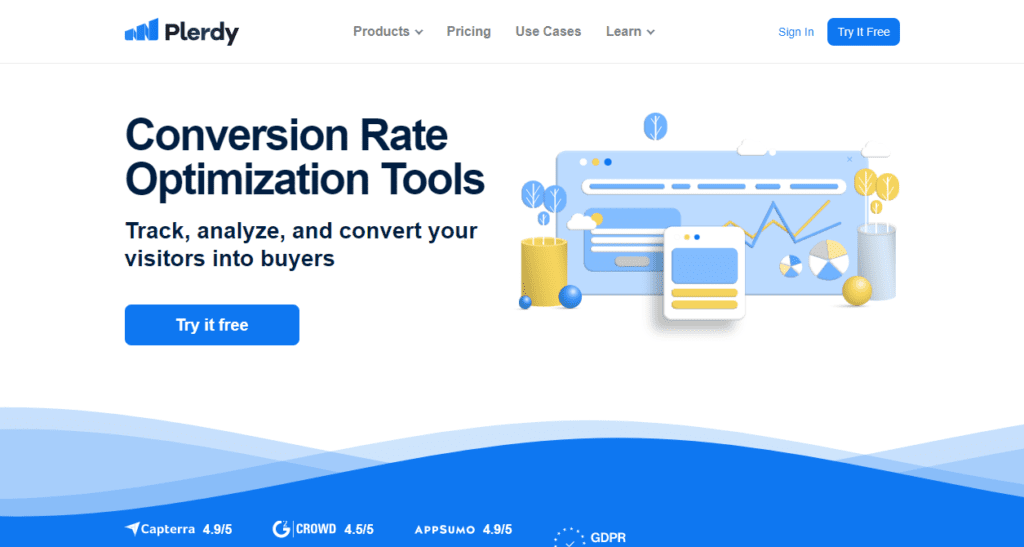
“Plerdy conversion rate optimization in the website analytics platform is one of the Google Analytics alternatives. You can apply it instead of Google Analytics or integrate the two solutions for data sharing. It optimises the work of your staff, saving SEO specialists up to 30 hours monthly,” says David Reid, Sales Director at VEM Group.
Simple Analytics is another cookieless analytics tool that focuses on privacy and data protection. If you get a lot of traffic from Twitter, then this could be a good option for you as it can even pinpoint specific tweet traffic.
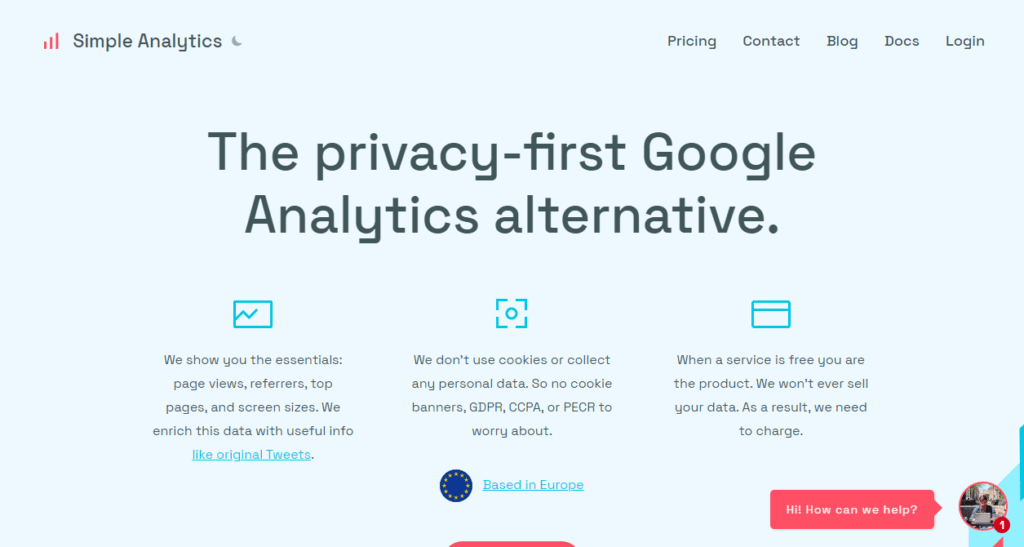
There are three pricing tiers for Simple Analytics: The $9/month Starter plan, the $49/month Business plan, and the Enterprise plan.
Smartlook is a qualitative analytics tool for web and mobile. It offers a visitor recording tool that allows you to see your website through the eyes of your visitors and exposes opportunities for better user experience.
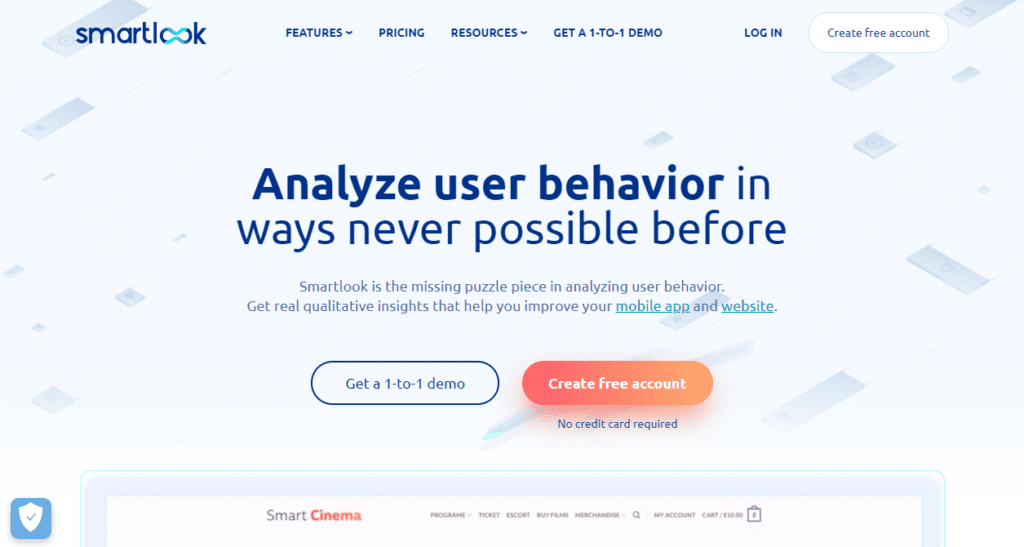
“One data analytics tool we’ve been employing recently is Smartlook, which provides excellent and easily digestible qualitative insight into user activity across our platform,” says Tina Hawk, SVP Human Resources at Goodhire.
Woopra is a real-time customer analytics service designed for sales, service and marketing teams. The platform allows you to leverage individual-level data to aggregate analytics reports for full lifecycle insights to help bridge departmental gaps.
There are four pricing tiers for Woopra: The $0/month Core plan, the $349/month Starter plan, the $999/month Pro plan, and the custom Enterprise plan.
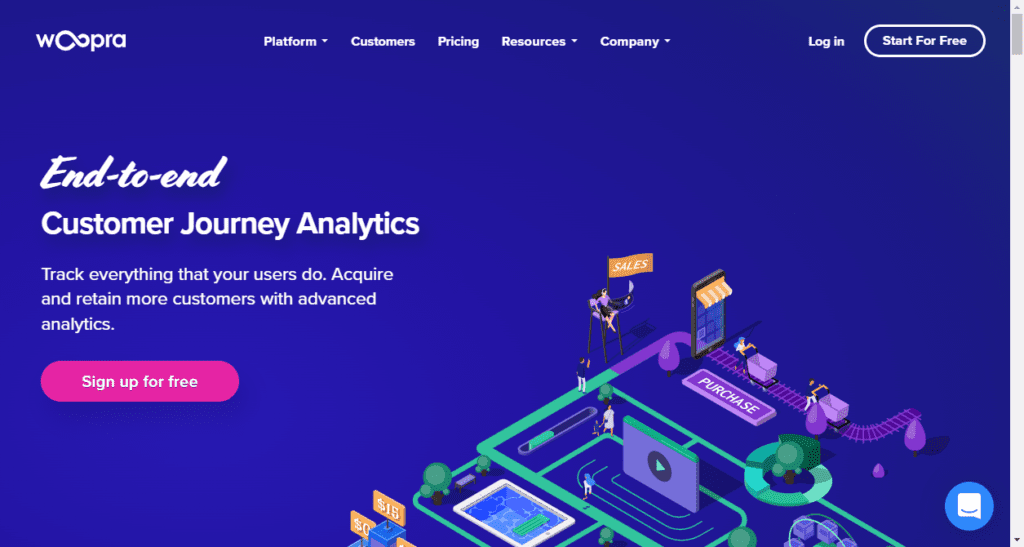
“Woopra allows us to track the visitors to the website as they interact with chat support features or via marketing emails. The tool follows the visitor as they navigate through the website and allows us to record when and where they take specific actions,” says James Crawford, Founder at DealDrop.
Honestly?
The answer relies on your unique circumstances.
Each business is different.
So whether there is or isn’t a better Google Analytics 4 alternative depends solely on the nature of your business, your goals and sales cycle.
One thing is for sure, with the right Google Analytics 4 alternative, you can benefit from useful insights to reduce costs and maximise your performance.
We hope our list of tools has made your hunt for finding a Google Analytics alternative much easier.
Most tools in this list are focused on tracking the behaviour of your website visitors rather than building a picture of their interactions through the entire customer journey.
If you’re looking to gain a single view of your marketing and sales data, your best bet is to stick with a tool like Ruler Analytics.
You can learn more about how Ruler attributes revenue to your marketing. Or, if you have any questions related to Ruler, make sure to book a demo and see it in action for yourself.
